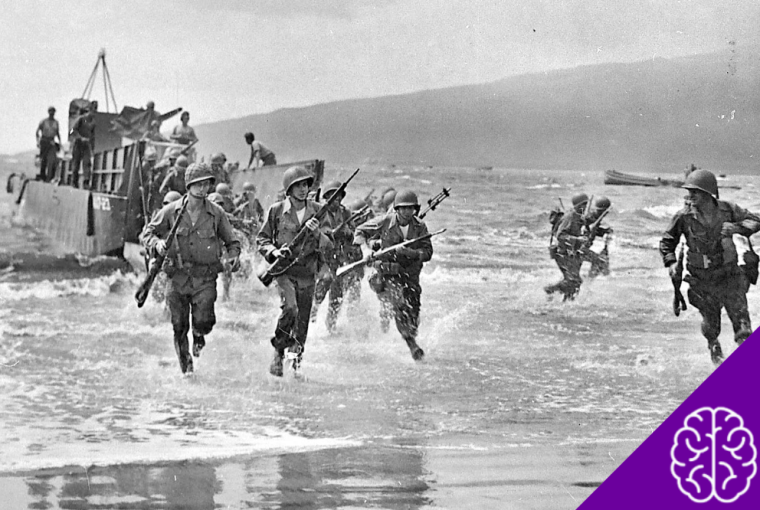World War II, one of the most well-documented events in human history, has been the subject of countless studies, books, and documentaries. Despite this, there are still lingering questions and unexplained events that challenge our understanding of this global conflict.
With over 70 nations involved, 70 million military personnel deployed, and 17 million combat-related deaths, the complexity of the war leaves certain mysteries unresolved.
Here, we take a closer look at four of these enigmatic elements of World War II that continue to puzzle historians and enthusiasts alike.
1. Why Did Japan Attack Pearl Harbor?
On December 7, 1941, Japan launched a surprise attack on the U.S. naval base at Pearl Harbor, destroying a significant portion of the U.S. Pacific Fleet. Over 2,300 American servicemen and 68 civilians lost their lives in this devastating strike.
While the attack is widely believed to be rooted in long-standing tensions between the U.S. and Japan over the Pacific region, the reasoning behind Japan’s bold move remains debated.
Militarily, it was a significant risk, given the formidable strength of the U.S. armed forces at the time. Japan’s objective was ostensibly to cripple American military power, but their failure to neutralize key U.S. assets left America capable of retaliating and entering World War II with renewed vigor.
This has led to questions about Japan’s strategic aims and whether its leadership underestimated the consequences of their actions. Was it sheer overconfidence or poorly calculated desperation? This mystery still invites further scrutiny.
2. Why Weren’t the United States Better Prepared for the Pearl Harbor Attack?
Another curious aspect of the Pearl Harbor attack lies in the lack of U.S. preparedness, despite mounting tensions between the two countries.
Some evidence suggests that American authorities may have anticipated the attack but failed to act decisively. Historical documents reveal at least three warnings from Japanese officials leading up to December 7, suggesting that the attack was not entirely unexpected.
Official accounts, however, maintain that President Franklin D. Roosevelt and other leaders were caught by surprise.
Critics claim that the warnings from Japan were either disregarded or misinterpreted, leading to inadequate defensive measures.
The question remains whether this was due to administrative oversight, a deliberate strategy to provoke U.S. involvement in the war, or a genuine failure to grasp the severity of the threat.
3. The Overestimated Power of Nazi Rocketry
The technological prowess of the Nazi regime has long been a topic of fascination, particularly their notorious V-2 rockets, which are often cited as the first long-range guided ballistic missiles.
During World War II, these rockets caused significant destruction in Britain and Belgium. Yet, contrary to their fearsome reputation, they were plagued by malfunction and inaccuracy.
Many of these rockets missed their targets or landed in sparsely populated areas. This raises questions about the true effectiveness of German rocketry during the war.
Did Nazi propaganda overstate the capabilities of their weapons to strike fear into their enemies? Or was their inability to perfect these technologies a result of rushed production during the final stages of the war?
4. Why Did Nazi Germany’s Nuclear Program Fail?
One of the most perplexing aspects of World War II is why Nazi Germany, with its exceptional scientific talent and resources, failed to achieve nuclear capability.
While the United States successfully developed atomic bombs as part of the Manhattan Project, Germany’s nuclear ambitions floundered.
Theories abound as to why this project failed. One possibility points to a lack of funding and prioritization; the German leadership directed resources into conventional warfare and other projects instead.
Another factor could be the exodus of key intellectuals, such as Albert Einstein, fleeing to countries like the U.S. to escape Nazi persecution.
Finally, refining uranium and producing nuclear weapons required immense time and precision, both of which became increasingly scarce as the tide of the war turned against Germany.
This failure dramatically shaped the final stages of the war, leaving historians to wonder how different the outcome might have been had Germany been successful.
Final Thoughts!
These unresolved mysteries of World War II serve as a reminder of the complexities and uncertainties of human history.
Despite the incredible volume of research and documentation, there will always be unanswered questions that challenge our understanding and offer new possibilities for exploration.
Are you intrigued by the historical enigmas of World War II? Share your thoughts or questions below—we’d love to hear what fascinates you about this pivotal moment in history!


